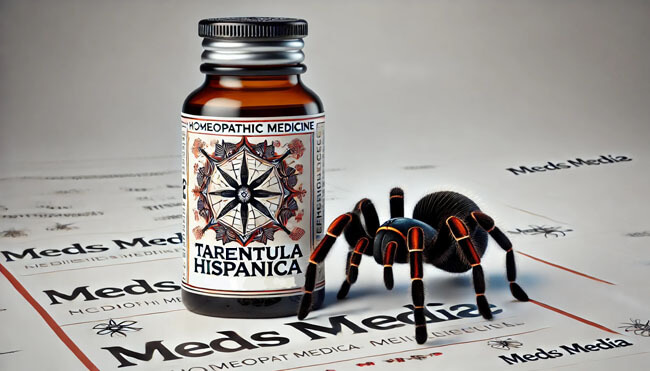Lycopodium Clavatum, commonly referred to as club moss, is a significant remedy in homeopathy used for various physical, mental, and emotional imbalances. The “Lycopodium personality” refers to the typical traits and behaviors that individuals who benefit from this remedy tend to exhibit. Understanding this personality profile is crucial for homeopaths and anyone interested in holistic healing to identify when Lycopodium Clavatum might be the appropriate remedy.
Mental and Emotional Characteristics
Individuals with a Lycopodium personality are often intelligent and intellectually sharp but can struggle with self-confidence. The following key traits are commonly observed:
- Insecurity and Low Self-Esteem: Despite their intellectual abilities, Lycopodium individuals often feel insecure about their capabilities. They fear failure and criticism, which can make them appear anxious or hesitant in new situations.
- Leadership with Anxiety: They may hold leadership positions but feel a deep sense of inner doubt. While they appear assertive and confident in public, they tend to second-guess themselves in private.
- Need for Approval: These individuals crave validation and approval from others, leading them to become people-pleasers. However, this desire for external validation can create inner conflict, as they struggle to balance their own needs with the demands of others.
- Irritability and Dictatorial Behavior: Lycopodium personalities often become irritable or domineering, especially at home, where they feel more comfortable expressing their frustrations. This behavior is often a defense mechanism against their underlying insecurity.
- Memory Problems: Lycopodium individuals may suffer from memory lapses, particularly when under stress or pressure, further adding to their sense of inadequacy.
Physical Characteristics
From a physical perspective, Lycopodium Clavatum individuals exhibit distinct characteristics that help guide homeopaths in their diagnosis:
- Gastrointestinal Complaints: One of the hallmark physical symptoms of a Lycopodium personality is digestive issues, particularly bloating, gas, and constipation. They may have a distended abdomen, feel full after eating only a small amount, and have a tendency toward flatulence.
- Weak Digestion and Craving for Sweets: Despite poor digestion, they often crave sweet foods and may experience discomfort after eating. Their digestion tends to be slow and irregular, and they are prone to indigestion.
- Cold Extremities: Lycopodium individuals often have cold hands and feet, which can be a sign of poor circulation. However, they may also dislike extreme cold temperatures and feel generally chilly.
- Right-Sided Afflictions: Lycopodium conditions tend to affect the right side of the body, such as right-sided headaches, sore throats, or pains in the right side of the abdomen. This is a notable clue in homeopathic diagnosis.
- Premature Aging: Lycopodium types may show signs of premature aging, such as early graying or thinning of the hair. There may also be physical weakness, particularly in the muscles.
Behavioral Patterns
The behavioral patterns of Lycopodium personalities often reflect their inner emotional struggles. These patterns include:
- Avoidance of Conflict: They tend to avoid confrontation and conflict, especially in public settings, preferring to deal with such situations through passive-aggressive means or avoidance altogether.
- Perfectionism: Lycopodium types may have perfectionistic tendencies, placing high standards on themselves and others. This perfectionism often stems from their need for external validation and fear of criticism.
- Lack of Initiative: Although they possess great intellectual ability, Lycopodium individuals may procrastinate or lack the initiative to take decisive action, often because they fear failure or being judged harshly.
- Over-Compensation in Leadership: In leadership roles, they may overcompensate for their insecurities by becoming bossy or overly controlling. They struggle to find a balance between assertiveness and cooperation.
Associated Diseases
Lycopodium Clavatum is often used to treat a wide range of physical and mental health conditions. The following diseases are commonly associated with the Lycopodium personality:
- Digestive Disorders: As mentioned, gastrointestinal issues such as bloating, constipation, flatulence, and indigestion are frequently treated with Lycopodium Clavatum.
- Respiratory Problems: Lycopodium is useful in treating respiratory conditions like asthma, bronchitis, and chronic colds, especially when symptoms are worse on the right side of the body.
- Liver and Gallbladder Issues: Liver dysfunction, gallstones, and other digestive organ issues can be addressed with Lycopodium when appropriate.
- Urinary Tract Disorders: Lycopodium individuals may suffer from urinary tract infections, kidney stones, or difficulty urinating.
- Erectile Dysfunction: Due to the general sense of inadequacy and performance anxiety, Lycopodium is also used to treat sexual disorders, including erectile dysfunction and premature ejaculation.
- Anxiety and Depression: Lycopodium is often used to treat anxiety, depression, and low self-esteem, especially in cases where these emotional conditions are intertwined with physical symptoms.
Miasmatic Personality of Lycopodium Clavatum
In homeopathy, miasms refer to inherited predispositions to certain types of illnesses, both physical and psychological. Lycopodium Clavatum is closely associated with the Sycotic miasm, which manifests as suppressed emotions, chronic ailments, and a tendency toward conditions that worsen over time without proper treatment.
The Sycotic miasm in Lycopodium manifests through:
- Suppressed Emotions: Lycopodium individuals often suppress their insecurities and anxieties, leading to chronic physical and emotional issues. The suppression of these feelings can cause an increase in irritability and a need for control over their environment.
- Chronic Conditions: As part of the Sycotic miasm, Lycopodium individuals tend to suffer from long-term, slow-developing conditions like liver disorders, gastrointestinal issues, or respiratory problems that become more difficult to treat with time.
- Fear of Being Found Out: A key trait of the Lycopodium personality under the Sycotic miasm is the fear of being exposed as inadequate or a failure. This fear drives much of their perfectionism, people-pleasing tendencies, and avoidance of confrontation.
Conclusion
The Lycopodium Clavatum personality in homeopathy is marked by a unique combination of intellectual brilliance, emotional insecurity, and physical weaknesses. Individuals who benefit from this remedy often struggle with self-confidence, digestive issues, and a perfectionist attitude that hides deeper feelings of inadequacy. Understanding these characteristics is essential for both practitioners and patients in homeopathic treatment, ensuring that the remedy is used effectively to balance both the mind and body.
Why Meds Media guides are different
We focus on clear, practical explanations of homeopathic and natural health topics so you can understand remedies, symptoms, and lifestyle changes in simple language.
Meds Media is an educational resource only. Always consult a qualified doctor or homeopathic practitioner before starting, stopping, or changing any treatment.
Similar Posts You may also like
Zincum Picricum Homeopathic Medicine & Personality | Uses, Benefits & Indications
Zincum Phosphoricum Homeopathic Medicine & Personality | Uses, Benefits & Indications
Zincum Iodatum Homeopathic Medicine & Personality | Uses, Benefits & Indications
Zincum Bromatum Homeopathic Medicine & Personality | Uses, Benefits & Indications
Zea Homeopathic Medicine & Personality | Uses, Benefits & Indications
Zincum Aceticum Homeopathic Medicine & Personality | Uses, Benefits & Indications
Zincum Cyanatum Homeopathic Medicine & Personality | Uses, Benefits & Indications
Zincum Muriaticum Homeopathic Medicine & Personality | Uses, Benefits & Indications
Zincum Oxydatum Homeopathic Medicine & Personality | Uses, Benefits & Indications
Zincum Sulphuricum Homeopathic Medicine & Personality | Uses, Benefits & Indications

Phosphorus Homeopathic Medicine & Personality | Uses, Benefits & Indications
Causticum Homeopathic Medicine & Personality | Uses, Benefits & Indications

Veratrum Viride Homeopathic Medicine & Personality | Uses, Benefits & Indications

Spongia Tosta Homeopathic Medicine & Personality | Uses, Benefits & Indications

Zingiber Officinale Homeopathic Medicine & Personality | Uses, Benefits & Indications

Sulphur Homeopathic Medicine & Personality | Uses, Benefits & Indications

Tarentula Hispanica Homeopathic Medicine & Personality | Uses, Benefits & Indications

